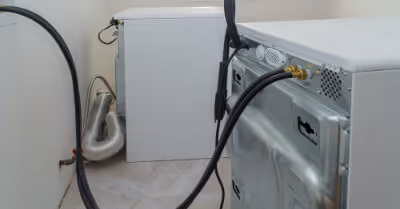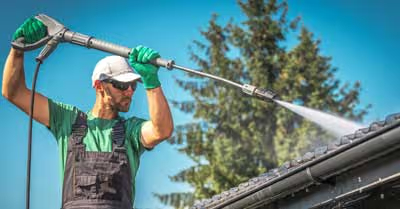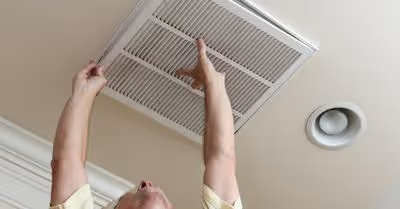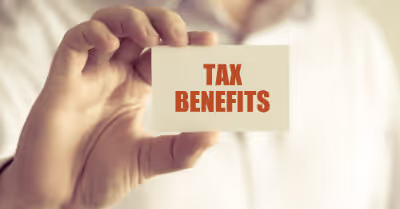Table of Contents
Benefits to Paying Off Your House Early
There are some great benefits to paying off your mortgage early because it can free up some extra finances for you to allocate for other uses. It also saves you money by reducing the amount of interest that you have to pay to the lender. Let’s check out the benefits to paying off the home early.
Reduce the Cost of Interest
Well, this is probably the largest benefit and possibly the most obvious. Interest on a home loan can be expensive and the longer that you have the mortgage hanging around, the more your hard earned income will go towards that interest. The impact that this has will depend on your mortageg’s interest rate, but it could be significant.
Pay Other Debts
When you have a mortgage, you have to make the payments every month to prevent foreclosure. This may cause you to put off paying other debts. When you pay off your mortgage early, it allows you to have more financial freedom. You can allocate funds to debts that have been hanging around causing you stress.
Financial Protection
If you undergo financial stress because of job loss, recession, unstable housing market, etc. then you may not be able to easily pay your mortgage payments. However, if you pay off your home early then losing your home is no longer a fear that you have to worry about. Furthermore, you will also have more equity in the home that you can use if needed. You can obtain a loan based on positive home equity if your budget gets too tight.
Financial Freedom
After paying off your mortgage and not having any other debts then you will have the financial freedom to pursue the life that you desire. This could mean additional travel time, starting a business, more investments, or more time with family. It could even mean picking up that hobby you have been eyeing for years!
Downsides to Paying off House Early
Financial advisors and experts often encourage homeowners to put extra money into their retirement accounts instead of using it to pay off their home early. This is because the stock market has consistently earned a 10 percent average annual rate of return for nearly 100 years. Therefore, you may earn significantly more by investing in the stock market than you would ever save by paying down the mortgage on your home.
Another consideration is the tax deductions that homeowners can write off their mortgage interest payments. This allows you to get some of the interest payments back on your refund each and every year.
Another thing to think about is the fact that the home ties up your net worth. In order to access the funds you would have to refinance or open a second mortgage or home equity loan. Also, the real estate market will determine the amount that you can get when it comes time to sell.
In addition, you could miss out on higher returns on investments that could exceed the amount of interest that you save by paying off the home mortgage earlier. However, you could also avoid a big loss from investments if the funds go towards the principal on your mortgage. Also, if you decide to put extra money in an IRA then that money will grow free of tax.
Financial experts and advisors often recommend that you build up an emergency fund before paying off your mortgage. This gives funds to use in the case of injury or illness, job loss, or other unexpected financial troubles. Without having an emergency fund you may have to turn to a high-interest credit card to pay unexpected expenses.
Ways to Pay off Your House Early
Refinance to a Shorter Term
Not all mortgages are 30-year loans and 25, 20, 15, and 10 year loans are sometimes options as well. Shorter loan periods mean that you will pay more each month, but less overall because the interest will be reduced for the life of the loan. The interest rates are generally a lot lower for shorter mortgages. For example, a 20 year loan is typically at least an eight percent lower and could be as much as a quarter percent lower. This combined with the fact that you will pay off the mortgage much earlier could mean significant savings of thousands or tens of thousands of dollars.
Keep in mind that there are sometimes fees attached to refinancing a mortgage. Take any fees into account before deciding if this is the best option for you and your finances.
Make Extra Principal Payments
This method allows you to pay off of the principal with any extra money that you have. Each month you can decide how much you can afford to pay off and add it to monthly payment to reduce your mortgage balance. Most mortgages that were issued after January 10th of 2014 will not charge any penalties for paying off the loan in this way.
This method can potentially save you thousands on your interest payments. The more you can afford to pay, the faster you will pay off your mortgage and the more you will reduce your interest for the life of the loan. However, the interest savings are not the only reason this may be a good option.
Paying off your mortgage early in this way is highly beneficial if you do it correctly. As long as you only pay what you really can afford, then you should not be harming your lifestyle or wellbeing by doing it. Then, when you have paid off all of the mortgage, you can use the money saved on the mortgage for retirement or investing.
Choose Bi-Weekly Payments
You may be wondering how bi-weekly payments are beneficial in any way because it just means that you have to remember two payments each month instead of one. Well, bi-weekly payments mean that you make one additional payment each year. Sure, this is not a ton, but it can be an effortless and financially stable way to slightly shorten your mortgage term.
It is important to handle this correctly though. Do not just start paying your loan off two times per month at half the amount. Instead, you need to speak with your loan servicer to arrange the plan.
Some people also just add an extra payment to the end of the year while keeping their regular payments monthly. However, that requires extra cash right after the holiday season which is sometimes not very practical. Whatever your choice, making an additional payment each year may be a good way to pay off the house early. It could pay off your loan over 4 years early and save you a lot of money in interest.
Recast Your Mortgage
Mortgage recasting is an often overlooked way to pay off your loan faster than 30 years. Recasting takes a different approach than refinancing and you get to retain your existing house loan. It is important to note that some lenders do not allow you to recast your mortgage, but you should check if you are interested in this option.
The way it works is that you will pay a lump sum towards the principal on the mortgage. Then, the bank will adjust the payment schedule to reflect the new balance. This will result in a shorter loan term.
Recasting has substantially lower fees than refinancing. In fact, the fees for mortgage recasting are usually only a few hundred bucks. Refinancing closing costs are significantly higher by a couple of thousands of dollars.
When you recast the mortgage, you will get to keep your interest rate. Therefore, this may be a great option for you if you already have a low interest rate that you would like to keep. However, if you have a high interest rate for your mortgage, then refinancing may be a more financially beneficial option.
Pay a Lump Sum
This option requires cash money, but may be a good way to pay off your house early if you come into money. Things like a large tax refund, bonuses, commission checks, or inheritances can be a good opportunity to pay a lump sum of your mortgage’s principal balance. This will allow you to pay off your mortgage sooner and be free of debt faster.
VA and FHA loans cannot be recast like some other mortgages. Therefore, lump-sum payments are often a good choice for these types of loans. It also saves you from paying the fee that accompanies a mortgage recast.
It is important to know that some mortgage lenders and servicers have to be told when paying a large payment. If you do not specify, then the payment can be split between the interest and the principal because it is divided like a typical monthly payment on the mortgage. Instead, you want to check with your mortgage servicer to ensure that the payment will go towards the principal.
Deciding to Pay Off Your House Early
Deciding to pay off your loan early is an important decision that involves a lot of different factors like your current financial state, the interest rate on the loan, and your risk tolerance among other things.
You can start by looking at the opportunity cost. If you pay off the mortgage early, then you are putting money into the mortgage when you could have used those funds for other investments or opportunities. You will save on interest, but would you get a higher return if you chose a different investment?
However, if you know that you will spend the money that you would put towards the mortgage on things that you do not need or that will not make you money in the long-run, then it may be beneficial to use that extra money to pay off the mortgage faster.
You may also want to think about your emergency fund. If you do not have enough money in there, then you may want to consider building that amount first. When considering the options, you also want to consider the pros and cons of each. For example, if you have a high interest rate, then refinancing may be a better choice than recasting. Or, if you get a large bonus at the end of each year, then paying an extra payment may make sense.
Recent Articles
















